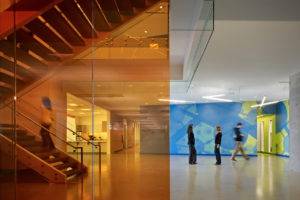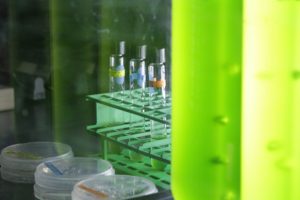We’re hiring! Posted: December 21, 2018 The Systems Education Experiences (SEE) program in the Baliga Lab at the Institute for Systems Biology (ISB) is currently hiring an Education Coordinator to work full or part-time. Since 2004, SEE has brought together interdisciplinary teams of students, educators, scientific researchers, engineers, and programmers to create new, engaging STEM […]
Introduction A human crisis of unprecedented proportions is in the making. Diminishing arable land, water shortage, and expected population growth to 10 billion portend a catastrophic food security crisis by 2030. This threat requires a dramatic reduction of the environmental footprint of agricultural practices. A paradigm shift to the food supply chain is necessary to […]
Course: Life Science, Integrated Science, STEM, BioChem, Marine Science Unit: Ocean Acidification, Ecology, Biogeochemical Cycling Objectives See the NGSS buttons on the right and the Standards Addressed page for all NGSS, WA State (Science, Math and Literacy), and NOAA Ocean Literacy Education Standards connections. For this lesson, due to the variety of experiments students conduct preceding the lesson, they […]
Purpose: The purpose of this lesson is for students to model the scientific process – which includes the experimental bench work they are completing in Lesson 5a and the collaboration and connection to others’ research. This lesson gives students the time and resources to learn from the work being completed by scientists and through their […]
Posted: March 9, 2018 The Baliga Lab at the Institute for Systems Biology (ISB) is currently hiring a high school teacher to work full time for 6 to 8 weeks during the summer of 2018. Since 2004, the Baliga Lab has joined teachers with researchers, engineers, programmers, and students to develop standards-, research- and inquiry-based […]
Students take an interdisciplinary approach to understand a global issue. The driving question: “How can we think and act on a systems level to produce and consume food resources that will be environmentally sustainable and sufficient for global needs?”



